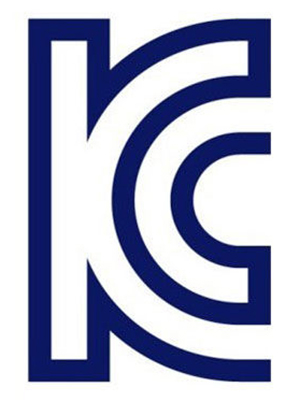Home appliance
-
-
KC certification
CTS
One stop testing and certification service in all fields
24-hour service line: +86-139 2959 4349
Switchboard: +86-0769-2236 0704
Email: Peter@cts -cn. com
In order to enable consumers to better understand the certification marks marked on the products they buy and reduce the various certification costs borne by product manufacturers, in July 2009, the Ministry of knowledge economy (mke) of South Korea began to implement and adopt the national unified KC certification mark, called "KC mark" mark. The new mark represents Korea certification, and the current 13 compulsory marks in South Korea will be finally unified under this new mark. One result of this measure is to reduce the expenditure of suppliers on certification fees, so that Korean KC mark will gradually become a certification of a world brand.
According to the provisions of the Korean electrical supplies safety management law, the safety certification of electrical supplies has been divided into compulsory certification and self regulatory (voluntary) certification since January 1, 2009.
Compulsory certification means that all electronic products belonging to compulsory products must obtain KC certification before they can be sold in the Korean market, and they need to be subject to Factory review and product sampling test every year.
Self regulatory (voluntary) certification means that all electronic products belonging to voluntary products only need to be tested and certified, and do not need to be subject to Factory review. The certificate is valid for 5 years.
KC certification scope: electrical products with input voltage between 50-1000, including wires and cables, electrical switches, capacitors and power filters, household insulation transformers, power tools, household appliances, electronic entertainment and information technology equipment (it) according to the classification method of IECEE).
Preparation of KC certification data
When applying for KC certification for new products, the following documents need to be submitted:
1. Application form;
2. Factory questionnaire;
3. Instructions;
4. Parts list;
5. List of derived models;
6. Circuit diagram;
7. Specification of parts;
8. Labels;
9. Product photos;
10. Parts allocation drawings or photos;
11. Power of attorney for appointment of agent;
12. Apply for changes;
13. Information that the applicant needs to keep;
14. Others: some documents recording the characteristics of electrical appliances.
For example:
A. Application for safety certification of electrical appliances (mandatory products), application for self regulatory safety confirmation of electrical appliances and self regulatory safety confirmation statement of electrical appliances (self regulatory products);
B. List of parts and components that directly affect safety;
C. Electrical circuit diagram;
D. Detailed specification of transformer (for related products);
E. Catalogue of insulating materials (temperature, withstand voltage characteristics or fire resistance grade, etc.);
F. Product certificate (including Korean product certificate);
G. Labels;
H. Agent authorization certificate (required for mandatory products; required for self regulatory products applied by agents).
KC certified factory inspection
South Korea's safety law stipulates that the first factory review of the factory is required after accepting the application. After the certificate is authorized, the certification authority will conduct an annual follow-up review of the factory every year, mainly to check the consistency of the factory's quality control system and whether it can continue to comply with the standards of the safety law.


